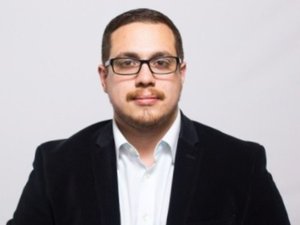Carey Anne Nadeau founded Open Data Nation to help cities predict the future. Or rather, to apply public data in a way that lets cities accurately model and plan for the future. Nadeau, A George Washington University alum, spent years working as a data scientist in the world of D.C. think tanks before moving into setting up her own startup. Open Data Nation is built around applying her skills to improving civic services with public data, a mission that earned her a spot in the latest cohort at D.C.'s Halcyon Incubator with other social entrepreneurs.
How do you define innovation?
Innovation is a mindset and commitment to disrupting what needs to change. It takes discipline and enthusiasm, but if you consciously aspire to achieve your vision for the future and you feel the urgency to get there, then innovation isn't a thing you do, its what comes of what you do and it becomes unavoidable.
Why did you shift from think tanks to startups?
There's a large amount of open data being published and geo-located in cities and counties. I felt no one was using the data and at [think tanks] there wasn't any interest in looking at the data, for many reasons. I felt like I was at the unsatisfying end of the road. I'm a data scientist by trade and I had no intention of starting a company, but no one else was doing the inquiries that were driving me. I couldn't do it without starting a company myself, so I did that.
What kind of questions have you helped cities start answering?
We've done a very extensive study on restaurant safety. We [built] FIVAR to predict which restaurants will fail their health inspections. [FIVAR] is our most advanced product. I use data like if they've failed before, construction activity nearby, even Yelp star ratings can be predictive. And all the data is public.
What kind of limitations are there to what you're attempting?
Cities have big questions to answer. They want to know, why are people poor? How can they get out of poverty? Things like that. But the data doesn't exist and you can't answer questions without data. That's a fundamental frustration of data science and analysts. You need to have the data. I wish I had access to data from private sector insurance companies and restaurant groups. Their interests to keep restaurants from causing foodborne illness is aligned with the cities efforts to fine for health code violations. Right now, we are building these public-private partnerships to promote the most beneficial outcomes and reach the most number of cities we can.
"Startups are a lifestyle of paranoia and euphoria, you're at one of those places at all times."
What kind of lessons have you learned since switching to the startup world?
It's so different. In think tanks there's prestige attached to your title and institution, and people make a big deal of it, but when i started my own own company I was a CEO and how cool is that. It's scary and there's the risk of being CEO one day and unemployed and homeless the next, but I'm so happy I did it. The advice I'd give about [founding a startup], is that it's like playing a game of cards. You can get a bad hand, all mismatched twos and fours, but even if you have an incomplete hand, you can still win the game. Startups are a lifestyle of paranoia and euphoria, you're at one of those places at all times. The best part of being an entrepreneur is feeling like I have lived this life to the fullest. I know I'm doing something worthwhile and personally fulfilling when I can't put my work down.




